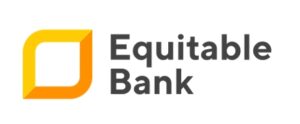Guest Post | April 19, 2023

Image: Unsplash/D koi
Based on the recent projections, global growth will slow down this year, going from 3.4% in 2022 to 2.9% in 2023. When facing periods of slow growth or recession, businesses must take steps to minimize the negative impact on their bottom line. Let's have a look at some practical ways enterprise companies can prepare for a potential recession.
#1 Keeping debts under control
High debt can be a heavy burden during a recession. Enterprise companies must have effective strategies to manage their debt effectively during an economic downturn.
For starters, businesses should focus on reducing their overall debt level. This can be done by cutting unnecessary spending and increasing income by renegotiating contracts and looking for new sources of revenue. Companies should also prioritize debt repayments and pay off debt with higher interest rates first.
Refinancing existing loans is another option to consider, as it allows companies to take out new loans with lower interest rates and reduce their borrowing costs.
Companies should also strengthen their credit control procedures and ensure clients pay on time. This can be done by setting up payment reminders, using automated invoicing solutions, and establishing clear policies to deal with delinquent accounts. When possible, companies can offer discounts or loyalty programs to encourage customers to pay on time.
#2 Develop strategies to manage cash flows more efficiently
During a recession, companies should develop strategies for managing cash flows more efficiently. This can be done by increasing liquidity through short-term financing or by selling non-essential assets.
Enterprise companies should also consider setting up a cash reserve, as this allows them to weather the storm more comfortably. A cash reserve is a sum of money that a business can keep on hand to meet emergency funding needs and periods of low revenue. Access to a cash reserve during a recession can help an enterprise company stay afloat and avoid cuts or layoffs. It can also help the business take advantage of any opportunity that may arise, such as discounted prices or supplies. Moreover, paying bills on time helps the company maintain good relationships with suppliers or creditors.
#3 Strengthen Security
Protecting your assets and data is particularly important when preparing for a recession, as damages to your property can be particularly painful during a period of economic contraction.
For starters, you should optimize your physical security strategy. This involves modernizing your business camera system and your access control solutions.
Make sure you select the appropriate type of camera for each area of your premises. For example, you can use infrared cameras to record nighttime activity or vandal-proof dome CCTV cameras for areas that are vulnerable to vandalism. You should also consider installing video analytics software, as this would allow you to detect suspicious activity earlier and avoid damage to your personnel and assets.
During an economic downturn, it's also important to strengthen your cybersecurity system. Loss of data to cybercriminals can cause significant financial and reputational damage to the company, which can be even more painful during a recession. Ensure you train your staff on the best cybersecurity practices, such as choosing strong passwords and recognizing phishing emails. It's also essential that you stay up-to-date with the latest antiviruses and firewalls and take additional steps to protect very sensitive data. This can be done by using modern encryption technologies and setting up multi-factor authentication (MFA) processes.
#4 Make Extra Efforts to Retain Top Talent
When economic times are difficult, enterprise companies must make extra efforts to retain their top workers. Having the right people on board during a recession can make all the difference and give you a significant edge over the competition.
For starters, companies should prioritize recognition and reward their best employees for their dedication and hard work. Making your workforce feel valued can increase their loyalty and morale, two very important factors when facing economic adversities.
Companies should also focus on upskilling. They can use periods of weaker economic performance as an opportunity to provide their staff with training that can maximize results when the company returns to growth.
Finally, companies should take proactive steps to look after the well-being of their employees. Monetary incentives alone are no longer sufficient to keep the workforce happy about their current work situation. Providing mental health support, flexible work hours, and helping employees manage stress can make your workforce feel more motivated and engaged.
#5 Automate Company Operations
Automating business processes can provide numerous benefits and help enterprise companies weather periods of economic downturns more effectively. Through automation, companies can, at the same time, reduce costs and boost productivity.
See: KPMG: Canadian Fintech Investment Drops in 2022, Mentality Shift to ‘Sensible’ Growth
Automation allows businesses to eliminate time-consuming manual processes and repetitive tasks that are prone to human errors. This also allows them to divert their human resources to more complex and strategic tasks.
 The National Crowdfunding & Fintech Association (NCFA Canada) is a financial innovation ecosystem that provides education, market intelligence, industry stewardship, networking and funding opportunities and services to thousands of community members and works closely with industry, government, partners and affiliates to create a vibrant and innovative fintech and funding industry in Canada. Decentralized and distributed, NCFA is engaged with global stakeholders and helps incubate projects and investment in fintech, alternative finance, crowdfunding, peer-to-peer finance, payments, digital assets and tokens, blockchain, cryptocurrency, regtech, and insurtech sectors. Join Canada's Fintech & Funding Community today FREE! Or become a contributing member and get perks. For more information, please visit: www.ncfacanada.org
The National Crowdfunding & Fintech Association (NCFA Canada) is a financial innovation ecosystem that provides education, market intelligence, industry stewardship, networking and funding opportunities and services to thousands of community members and works closely with industry, government, partners and affiliates to create a vibrant and innovative fintech and funding industry in Canada. Decentralized and distributed, NCFA is engaged with global stakeholders and helps incubate projects and investment in fintech, alternative finance, crowdfunding, peer-to-peer finance, payments, digital assets and tokens, blockchain, cryptocurrency, regtech, and insurtech sectors. Join Canada's Fintech & Funding Community today FREE! Or become a contributing member and get perks. For more information, please visit: www.ncfacanada.org
Want to get insider access to some of the most innovative advances happening in #fintech. Register for #FFCON23 and hear from global thought leaders what’s next! Click below for Open Access tickets to all virtual programming and on-demand content from FFCON23.Support NCFA by Following us on Twitter! |
Related Posts
- SEO Powered Content & PR Distribution. Get Amplified Today.
- Platoblockchain. Web3 Metaverse Intelligence. Knowledge Amplified. Access Here.
- Minting the Future w Adryenn Ashley. Access Here.
- Source: https://ncfacanada.org/2023-trends-for-enterprise-companies-to-prepare-for-a-recession/
- :is
- $UP
- 100
- 2018
- 2022
- 2023
- 28
- a
- About
- access
- Accounts
- activity
- Additional
- advances
- ADvantage
- affiliates
- After
- All
- allows
- alone
- alternative
- alternative finance
- analytics
- and
- Another
- any
- appropriate
- April
- ARE
- AREA
- areas
- AS
- Assets
- At
- Authentication
- automate
- Automated
- Automation
- BE
- become
- below
- benefits
- BEST
- Bills
- blockchain
- board
- Bonus
- boost
- Borrowing
- Bottom
- burden
- business
- business processes
- businesses
- by
- cache
- camera
- cameras
- CAN
- Canada
- Canadian
- Cash
- Cause
- CCTV
- choosing
- clear
- click
- clients
- closely
- COM
- community
- Companies
- company
- competition
- complex
- Consider
- content
- contraction
- contracts
- control
- Costs
- create
- credit
- creditors
- Crowdfunding
- cryptocurrency
- Current
- Customers
- cuts
- cutting
- cybercriminals
- Cybersecurity
- data
- deal
- Debt
- decentralized
- dedication
- Demand
- develop
- difference
- difficult
- digital
- Digital Assets
- discounts
- distributed
- down
- DOWNTURN
- downturns
- Drops
- during
- each
- Earlier
- Economic
- economic downturn
- economic performance
- ecosystem
- Edge
- Education
- Effective
- effectively
- efficiently
- efforts
- eliminate
- emails
- emergency
- employees
- encourage
- encryption
- engaged
- ensure
- Enterprise
- Errors
- essential
- establishing
- Ether (ETH)
- Even
- events
- example
- existing
- extra
- facing
- finance
- financial
- financial innovation
- financing
- fintech
- FinTech investment
- firewalls
- First
- flexible
- Flows
- Focus
- following
- For
- from
- funding
- funding opportunities
- get
- Give
- Global
- going
- good
- Government
- Growth
- hand
- Happening
- happy
- Hard
- hard work
- Have
- having
- Health
- hear
- heavy
- help
- helping
- helps
- higher
- HOURS
- http
- HTTPS
- human
- Human Resources
- IMF
- Impact
- important
- in
- Incentives
- Income
- Increase
- increasing
- industry
- information
- Innovation
- innovative
- Insider
- installing
- Insurtech
- Intelligence
- interest
- Interest Rates
- investment
- invoicing
- IT
- Jan
- join
- jpg
- Keep
- keeping
- KPMG
- large
- latest
- layoffs
- leaders
- Level
- Line
- Liquidity
- live
- Live Events
- Loans
- longer
- Look
- looking
- loss
- Low
- Loyalty
- Loyalty programs
- maintain
- make
- Making
- manage
- managing
- manual
- March
- Market
- max-width
- Maximize
- May..
- Meet
- member
- Members
- mental
- Mental health
- MFA
- Modern
- Monetary
- money
- more
- Moreover
- most
- motivated
- multi-factor authentication
- needs
- negative
- networking
- New
- Newsletter
- numerous
- numerous benefits
- of
- offer
- on
- On-Demand
- open
- opportunities
- Opportunity
- Optimize
- Option
- our
- over
- overall
- painful
- particularly
- partners
- Passwords
- Pay
- paying
- payment
- payments
- peer to peer
- People
- performance
- period
- periods
- perks
- Personnel
- phishing
- physical
- Physical Security
- plato
- Plato Data Intelligence
- PlatoData
- please
- policies
- possible
- Post
- potential
- Practical
- practices
- Prepare
- preparing
- Prices
- Prioritize
- Proactive
- procedures
- processes
- productivity
- Programming
- Programs
- projects
- property
- protect
- provide
- provides
- providing
- Rates
- recession
- recognition
- record
- reduce
- reducing
- register
- Regtech
- Relationships
- repayments
- repetitive
- Reserve
- Resources
- Results
- retain
- returns
- revenue
- Reward
- s
- same
- Sectors
- security
- Selling
- sensitive
- Services
- setting
- shift
- short-term
- should
- sign
- significant
- situation
- slow
- Software
- Solutions
- some
- Sources
- Spending
- Staff
- stakeholders
- starters
- stay
- Steps
- Stewardship
- Storm
- Strategic
- strategies
- Strategy
- Strengthen
- stress
- strong
- such
- sufficient
- suppliers
- support
- suspicious
- system
- Take
- tasks
- Technologies
- that
- The
- their
- Them
- this year
- thought
- thought leaders
- thousands
- Through
- tickets
- time
- time-consuming
- times
- to
- today
- Tokens
- top
- Train
- Training
- Trends
- true
- under
- Unsplash
- up-to-date
- upskilling
- us
- use
- valued
- vibrant
- Video
- Virtual
- Visit
- Vulnerable
- ways
- Weather
- which
- will
- with
- Work
- Workforce
- works
- would
- year
- Your
- zephyrnet














